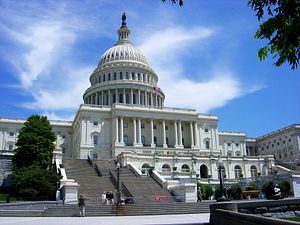U.S. Senators Marco Rubio and Tom Cotton have introduced a bill that would establish punitive measures against government officials in Hong Kong or mainland China who are responsible for suppressing basic freedoms in Hong Kong. The Hong Kong Human Rights and Democracy Act proposes the freezing of assets of those identified to be involved in a spate of controversial matters than have been directly linked to the autonomy of Hong Kong. The bill comes after an annual report of the Congressional-Executive Commission on China (CECC) published last month, which said that the U.S. administration and Congress should consider the need to revise the 1992 Hong Kong Policy Act.
Last year, a group of U.S. legislators, including the CECC’s chairman, Representative Chris Smith, presented a companion bill in the House of Representatives. However, this newest bill takes into account the recent abductions of Hong Kong booksellers who mysteriously, and inexplicably, turned up in Chinese prisons confessing to a list of strange misdemeanors, as well as the Hong Kong government’s removal of two elected pro-independence legislators.
“The United States must lead the world in ensuring that the Chinese government ceases any repressive acts in Hong Kong and abides by its three-decade-old international commitment to respect the autonomy of Hong Kong,” Cotton said in a press statement. “[…] This bill would empower the president to hold Beijing accountable and send a strong message to Chinese officials that attempts to undermine liberty in Hong Kong and walk away from their promises will not be without consequences.”
The United States has different policies toward Hong Kong and China owing to Hong Kong’s unique history and global financial importance. Under the existing Hong Kong Policy Act of 1992, Washington supports the democratization of Hong Kong and fully backs the “one country, two systems” principle.
The legislation requests that the U.S. president identify responsible parties for the surveillance, abduction, detention, or forced confessions of journalists in Hong Kong, as well as those parties responsible for the abduction of the Hong Kong booksellers. It asks the president to freeze U.S.-based assets and deny those identified from entering the United States.
Rubio has criticized China’s constant infringement on the international treaty that was established during the handover of Hong Kong by the British in 1997.
“China’s assault on democratic institutions and human rights is of central importance to the people of Hong Kong and to its status as a free market, economic powerhouse, and hub for international trade and investment,” Rubio said. “It is critical in the days ahead that the democratic aspirations of the people of Hong Kong be a vital U.S. interest and foreign policy priority.”
The new bill follows Rubio’s meeting with Hong Kong student activist, Joshua Wong, the proxy leader of the 2014 Umbrella Movement. At the meeting, Rubio applauded Wong’s work toward democracy and Hong Kong’s autonomy.

































